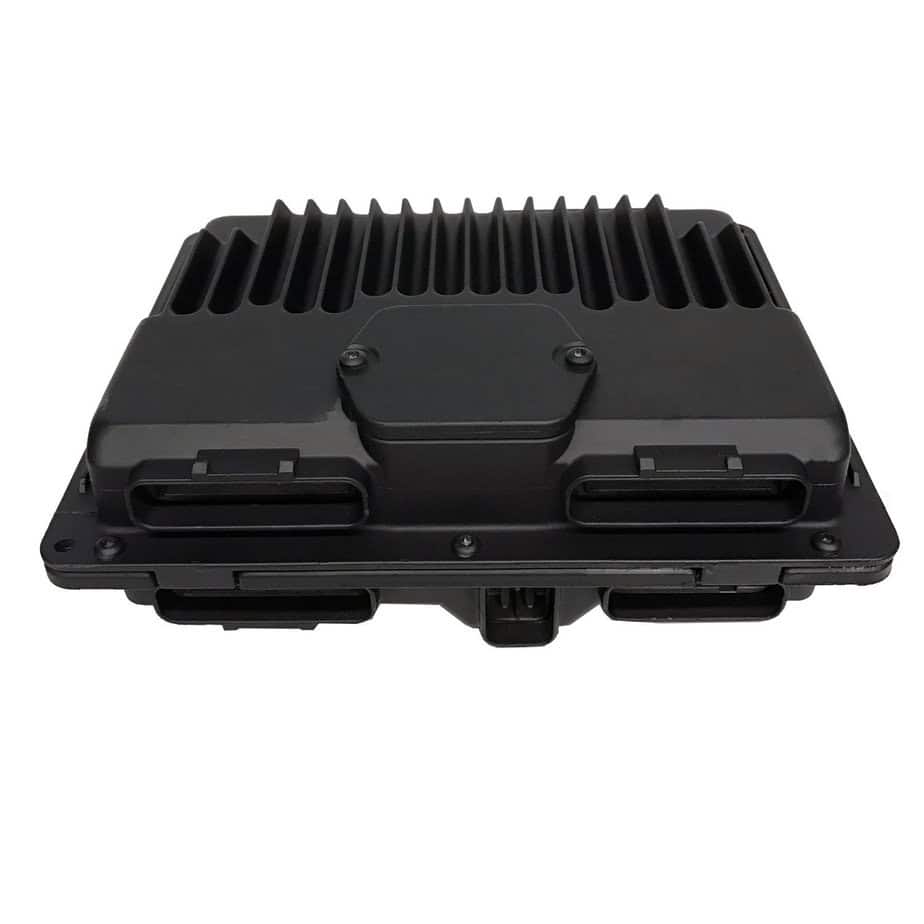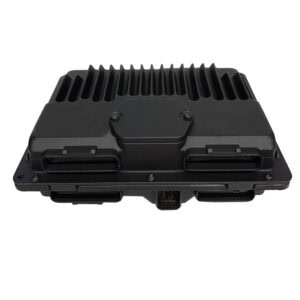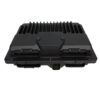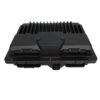Restore Peak Performance to Your GM Truck or SUV
Is your GMC Envoy, Chevy S10, or Express Van acting up? If you’re dealing with a persistent Check Engine Light, erratic shifting, a rough idle, or a no-start condition that you just can’t pin down, the problem often lies with a failing Powertrain Control Module (PCM). As a technician with over two decades of experience under the hood, I’ve seen countless drivers chase their tails replacing sensors, only to find the vehicle’s ‘brain’ was the culprit all along. This module is the central command for your engine and transmission, and when it fails, it can cause a host of confusing and frustrating issues.
This isn’t just a replacement part; it’s a complete, hassle-free solution. We take the guesswork and expense out of the repair by programming this PCM specifically for your vehicle using your VIN. It arrives loaded with the latest GM software updates, ensuring optimal fuel delivery, ignition timing, and transmission control. You get a reliable fix that restores the smooth, dependable operation you expect from your vehicle. By installing this pre-programmed 1998-2000 Envoy Powertrain Control Module, you’re not just fixing a problem—you’re ensuring your vehicle runs as efficiently and reliably as possible.
Case Study: A Tricky Diagnosis
I remember a 1999 Chevy Blazer that came into the shop with an intermittent stalling issue that no one could figure out. It would run perfectly for days, then suddenly die at a stoplight. No consistent codes, just frustration. After checking fuel pressure, spark, and all the usual suspects, we hooked up a scope to the PCM’s power and ground circuits. We discovered that heat soak from the engine was causing an internal short in the module, but only after it had been running for 30+ minutes. A new, pre-programmed PCM like this one solved the issue instantly. The customer went from wanting to sell the truck to trusting it again for daily driving.
Is Your GM Truck or SUV Showing These Signs?
A failing PCM can manifest in many ways. If you’re experiencing any of the following, it’s a strong indicator that your engine computer needs attention. Look out for:
- ✔ Unexplained Check Engine Light (CEL) illumination
- ✔ Stalling, stumbling, or rough idling
- ✔ Harsh or erratic automatic transmission shifting
- ✔ A significant drop in fuel economy
- ✔ The engine cranks but refuses to start
- ✔ Failed emissions test
- ✔ Diagnostic Trouble Codes (DTCs) related to internal module failure, such as P0601, P0602, P0604, or P0606.
A Straightforward Guide to Your PCM Swap
For the confident DIYer, replacing the PCM is a manageable job. The key is patience and following the proper procedure. While locations vary slightly by model (as noted in the fitment list), the general process is similar.
- Safety First: Always disconnect the negative terminal from your vehicle’s battery and wait at least 15 minutes for the system capacitors to discharge.
- Locate the PCM: On most of these trucks and vans, it’s in the engine bay, either on a fender well or near the battery. It’s a silver metal box with several large electrical connectors.
- Disconnect the Harnesses: Carefully release the locking tabs on the electrical connectors and pull them straight out from the module. Never force them. Inspect the pins for any corrosion or damage.
- Remove the Old Module: Unbolt the old PCM from its mounting bracket. Keep the hardware, as you may need to reuse it.
- Install the New Module: Bolt your new, pre-programmed PCM into place. Reconnect the electrical harnesses, ensuring they click securely into position.
- Reconnect the Battery: Attach the negative battery terminal. The vehicle is now ready to start.
- Perform Security/CASE Relearn (If Needed): Some vehicles may require a security relearn or a Crankshaft Variation (CASE) relearn procedure. This can often be done without special tools. Consult a service manual for your specific vehicle’s procedure.
Verified Vehicle Compatibility List
This module is a direct replacement for part numbers 16263494, 16265035, 8162634940, 218-11787, and 21811787. It is guaranteed to fit the following vehicles. Please confirm your model and year:
- GMC Envoy: 1998-2000
- Chevrolet Trucks: 1500/2500/3500 Pickup (1999-2000), S10 (1998-2000), Blazer (1998-2000), Tahoe (1999-2000), Suburban (1999)
- GMC Trucks: 1500/2500/3500 Pickup (1999-2000), Sierra 1500 (1999-2000), Sonoma (1998-2000), Jimmy (1998-2000), Yukon (1999-2000)
- Chevrolet Vans: Express 1500/2500/3500 (1999-2002), Astro (1999-2001)
- GMC Vans: Savana 1500/2500/3500 (1999-2002), Safari (1999-2001)
- Cadillac: Escalade (1999-2000)
- Oldsmobile: Bravada (1998-2000)
- Isuzu: Hombre (1998-2000)
Note: Specific options or build dates may apply. Match your part number or contact us with your VIN to ensure 100% compatibility.
How does the VIN programming work?
How does the VIN programming work?
After you complete your purchase, you simply provide us with your vehicle’s 17-digit VIN. Our technicians use this number to flash the module with the exact software and calibration file your vehicle requires from the factory, including any available updates from GM. This ensures it works correctly right out of the box.
Do I need any special tools to install this?
For most installations, you only need basic hand tools like a socket set to remove the module’s mounting bolts and disconnect the battery. Because the module comes pre-programmed, you do not need a dealership scan tool for programming.
What is a CASE relearn and will I have to do one?
A CASE (Crankshaft Angle Sensor Error) relearn synchronizes the new PCM with the engine’s crankshaft position sensor. This is required on some GM vehicles to prevent a P1336 trouble code. The procedure can often be done without a scan tool and instructions are widely available online or in service manuals. Many vehicles will not require it.
Is this a reliable, long-term fix?
Absolutely. This 1998-2000 Envoy Powertrain Control Module is fully tested to meet or exceed OEM specifications. We address common failure points in the original hardware, providing a dependable component that restores factory performance and reliability for the long haul.



